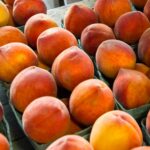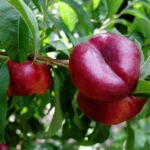Ausveg invites Asian delegates to find Australian produce opportunities

In an industry-first initiative, Australia’s peak vegetable body Ausveg is combining efforts with Horticulture Australia Limited (HAL) in order to forge Reverse Trade Mission relationships with Asia. At www.freshfruitportal.com, we speak with Ausveg spokesperson William Churchill on how this initiative can create bigger opportunities for Australian growers and expand the nation's vegetable industry on a global scale. 
As part of a greater scheme to broaden the industry’s horizons, Ausveg is welcoming representatives from key Asian food retailers, providers and chefs to showcase the nation's vegetable farms and growing standards. Stakeholders from Hong Kong, Malaysia and Japan will be flying into Australia in time for the Ausveg National Convention held on May 30 on the Gold Coast.
"They’ll [stakeholders] come to our National Convention and we’re also taking them around to some of the leading farms around Australia so that they see the quality of product that we grow," Churchill says.
"They’re going to some of our major producers and top selling products in Australia – carrots, potatoes, lettuces, broccoli, cauliflowers, your main high-consumable products that we've got at the moment."
He says he is confident Australian vegetables will be highly sought out in Asia, due to differences in food quality standards.
"If you look at some of the food quality stories you hear, particularly out of countries like China, we've got a list of issues. Last year they had some formaldehyde on cabbage, which is a type of embalming; it causes gastro-intestinal erosion. It burns your guts out.
"There's a lot of quality questions surrounding produce over there and one thing Australia is really proud of is the quality assurance system – how we can speak for the quality of the product that we produce, the way that it’s grown and the people that grew it.
"I think it's [food quality] important to some of the big markets that we’re looking at in Asia – the emerging middle class and the high wealth demographics."
Ausveg is set to target distributors, buyers and restaurateurs in the hopes of expanding to other markets, including supermarkets and key retailers.
"As we start to get more accustomed to doing this and seeing what successes we have, we'd love to start getting supermarket buyers who'd want to have a new line of product available in their stores. We want to bring those kinds of guys to Australia and they can see the quality of the product that we have.
"We'll start to expand that list in future missions, and if we find somebody who says 'I want to buy Australian tomatoes', we’ll say 'excellent, come on to our next Reverse Trade Mission we run and we'll put some tomato growers onto the list for you'," he says.
Australia: a global leader in food security
Quality control has been set as top priority by Ausveg to ensure good relationships are established with the new partners.
"Biosecurity is a challenge. One of the ones that we do have is fresh vegetables and fresh produce in general – you can’t really put it on a shipping container then send it overseas. You can do it with potatoes and some types of carrots, but some things like lettuces or even broccoli, you want to get that onto a plane.
"Diplomatically, we won’t be introducing any foreign pests or invasive species into the countries we’re sending product to. That’s a big concern for Australia; we don't want to have new species, varieties, insects or fungus arrive in Australia, so you'd expect the same when you're sending product overseas.
"Exporting isn’t something you just want to get into. It does take time and effort. Certainly the vegetable industry is well equipped to address these challenges."
Churchill believes the nation's top food quality to be a key attribute when exporting fresh produce overseas.
"It might be a long distance from here to Kuala Lumpur, or to Hong Kong, or to Tokyo, but we can still give you a reliable supply chain.
"One of the things we may be able to capitalize on is the high quality of product that we have."
He adds that the buyers expect continuity in supply and Australia is a good choice for both security and food quality.
"One of the most important things to anyone importing food is being sure of supply and knowing that the people who are sending you product aren't going to go out of business next week.
"I think anyone in the Asian region should be seriously taking a good look at Ausveg and the Australian vegetable industry."
Growing the industry
The Reverse Trade Mission is said to be just a stepping stone for what is hoped to become a more globalized strategy for the future of the Australian fruit and vegetable industry.
"It's our toe in the water this time. We're going with the really big commodity crops and then we can also demonstrate to anyone who wants to buy product from Australia, that we also have the capacity to grow and export produce out of this country."
Ausveg will be running an 'Export into China' forum at the upcoming national convention, while the association will also be present at Asia Fruit Logistica in Hong Kong on Sep. 4.
"We're all about market development, trying to give opportunities to growers and access to new markets overseas so that they can make and grow their businesses," Churchill says.
"It will be an opportunity to meet and network with some of the leading supply chain dealers in Asia and show them that we're capable of doing what the rest of the world has been doing for a while now."













































